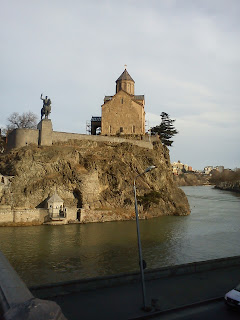Satisfy autumn apperite with Slow Food!
Hi everybody!
It’s been a while. And today I recalled I promised a post about Slow-Food (https://sustainableexperience.blogspot.com/2020/09/be-part-of-place-enjoy-local-food-and.html) . Perhaps triggered by the annual autumn appetite ;-) here some tips about Slow Food, for those who never heard about it.
Slow Food is a part of the global debate about what eating means, and how it affects our life, ourselves. It a pebble in the mosaic of a paradigm change: modernity is not all about being fast, reckless, new and upgraded every 50 seconds. There’s a form of modernity, which invites to awareness, comprehension, preservation, promotion, and being present in the present, with all the time this process requires. All this happens while you eat, as well.
Slow Food (https://www.slowfood.it/) was born as a reaction to fast food, that is to say to those large chains that have established themselves in recent decades and that make you eat standardized food, in a bite. A name above all: Mc Donalds'. The Slow Food project was born precisely in reaction to the proposal to open a Mc Donalds' fast food at Lista di Spagna in Rome, in 1986.
A grass-root reaction stemmed to what was perceived as a form of cultural incompatibility between art - which must be understood, treated with respect, contemplated, preserved - and a chain that has become the symbol of consumerism in the world, of fast and low-quality production, of standardization.
From this first spring, the Slow Food developed from a local grass-root movement to a huge global network. Today Slow Food today extends through its convivia in more than 100 countries (about 400 in Italy alone). From the convivia to the Ark of Tastes: The Ark aims to catalog and save flavors and tastes which risk disappearing.
Then, there are the Presidia. A Presidium focuses on a product. Producers gather around the presidium, and under the aegis of Slow Food they make it known and to the market! The philosophy behind it is that of sustainability: maintaining biodiversity, supporting the profits of local economies, creating awareness of food culture, of the link between nature, environment, health. The spirit of the movement remains true to its origin: fighting haste and disinterest in what you do, what you eat, on how it is produced. Slow food stands for the promotion of slowness, nature, eco-sustainability.
A similar process has also affected the wine sector. The culture of wine, so important throughout the Mediterranean, is experiencing its umpteenth spring. Wine has become a product capable of moving important numbers of tourists, it has its own dedicated fairs that attract thousands of visitors of which only a part are operators in the sector, and has generated new tourist destinations and a new way of doing tourism in some areas. A theme tourism: the discovery of wine, through tastings, visits to wineries, vineyards, directly in the production area.
In Italy since 1999 there is a specific legislation on the wine routes…
Hope these tips are satisfying your autumn appetite ;)


Commenti
Posta un commento